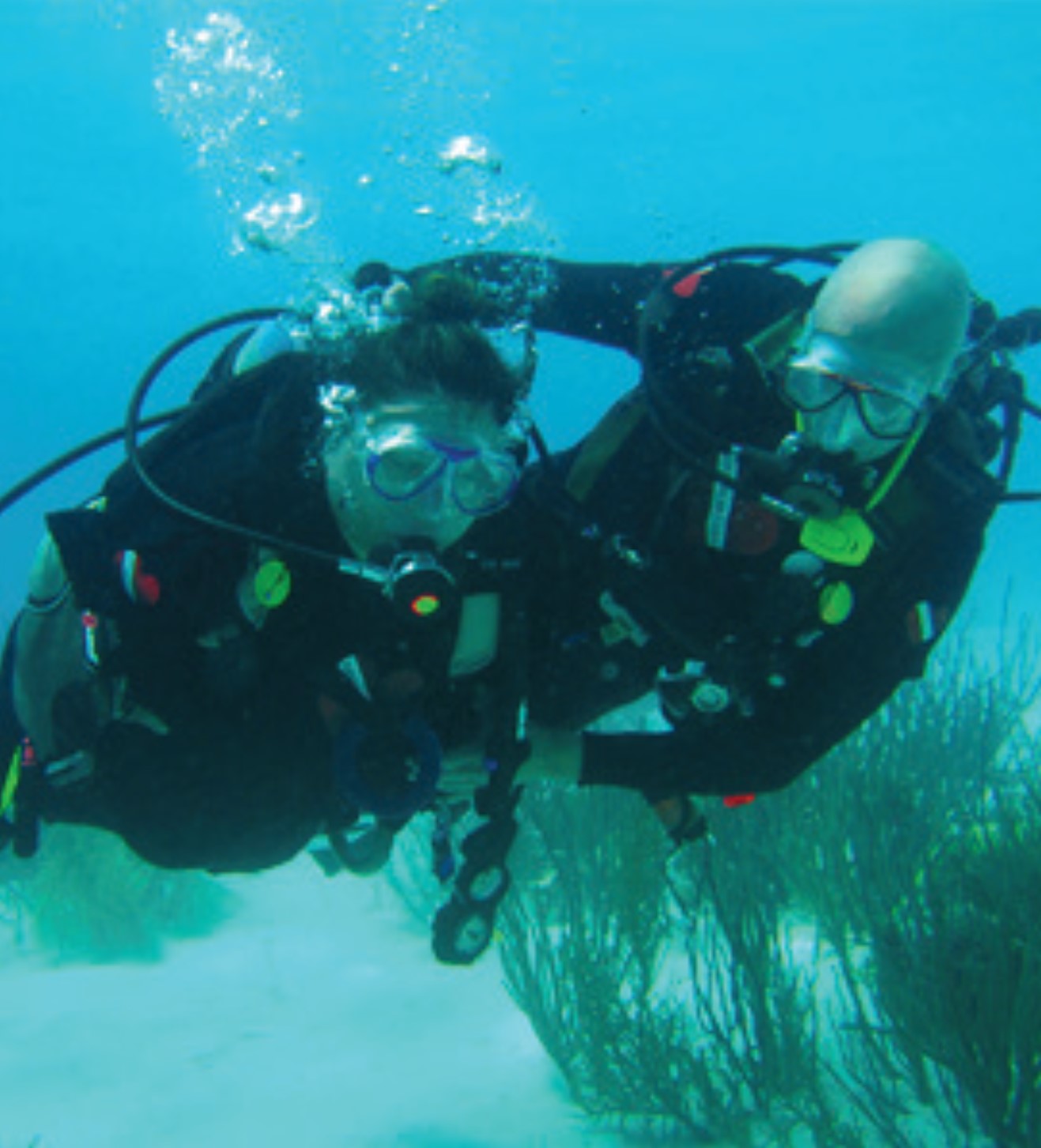Scuba diving can be an exotic and enriching activity, but for many, it can also be a therapeutic one. The weightlessness of a water environment allows individuals with a range of injuries or disabilities to exercise, relax, have fun, and gain confidence. Children and adults with challenges including traumatic brain injuries, amputation, spinal cord injuries, cerebral palsy, and blindness can enjoy the physical and psychological benefits of scuba diving. Diveheart, a nonprofit organization founded in 2001, trains thousands of volunteers and works with injured and disabled individuals across the world, in areas including the United States, Mexico,UK, Malaysia, Israel, Philippines and the Caribbean. As Darrell Young, a Vietnam veteran who is paraplegic as the result of a spinal cord injury, explains in a testimonial on the Diveheart website, “Diving gives me a high expectancy of myself. It gives me a goal to accomplish knowing that when it comes to the finish line it doesn’t matter how I finish my dive, but the feeling of strength I gain from diving,” he says.
Diveheart relies on volunteers and donations to help provide adaptive diving and scuba therapy experiences at no cost to the participants. Most of the initial training and first diving experiences occur in school or com-munity pools. Participants don’t even need to know how to swim to benefit from therapeutic scuba diving, and the learning curve is almost immediate, according to Diveheart’s website details. Dive-heart works to spread the word that diving is a real option with many benefits for the individuals affected with injuries and for the volunteers who get involved as “dive buddies.” The basic experience of being in the water with the support of a trained “dive buddy” can relieve pain, improve focus, and bring joy, according to Diveheart participants.
Diveheart also provides adaptive dive training for those who want to take the next step and become adaptive divers or dive buddies to help others. Most Diveheart participants are eager for destination scuba-diving adventures once individuals are trained and comfortable with the scuba experience. Diveheart offers opportunities for fundraising and also works to find grants for those who struggle with the cost of a dive get away. In addition, Diveheart works with the science and medical communities to provide data and research opportunities on the benefits of therapeutic scuba diving for a range of medical conditions.
In fact, one might not think that someone with no arms and no legs could swim, much less scuba dive, but with the help of one non-profit organization based in the Chicago land area, children, veterans and people of all abilities around the world can benefit from zero gravity and scuba therapy.
The Downers Grove-based Diveheart Foundation has been serving individuals with everything from spinal cord injuries and traumatic brain injuries to those on the autism spectrum and with post-traumatic stress disorder.
Since 2001, this 501 C3, volunteer-driven charity has done everything from helping to facilitate cutting-edge scuba therapy research with university medical centers around the country to launching a leading international adaptive scuba training program for scuba instructors, dive buddies and adaptive divers (Diveheart refers to people with disabilities as adaptive divers, not handicapped or disabled divers). “It’s not about scuba diving,” according to Tinamarie Hernandez, Diveheart Executive Director.
“Diveheart’s ultimate goal is to take the unrealized human potential that exists with individuals with disabilities and create a paradigm shift in their lives,” she says. “We take Chris in the wheelchair and help him or her become Chris the scuba diver. Now Chris is no longer defined by his or her disability,” she adds. “Diveheart then helps direct them to activities like coral reef restoration, marine biology and oceanography, giving them focus, purpose and helping them to feel valued while they are learning to become good stewards of the environment.” Diveheart’s free scuba experience programs reach from coast to coast in the U.S. and are replicated by Diveheart teams as far away as Malaysia.
Researchers from around the country have found that the benefits of scuba therapy and zero gravity underwater range from relief of symptoms caused by post-traumatic stress disorder and chronic pain to increased focus and a sense of well-being in those with developmental disabilities.
Researchers have also discovered that there are big benefits in going deep because the body produces an extra output of serotonin once divers reach 66 feet underwater. However, those with devel-opmental and physical disabilities can benefit from the very first pool session.
Diveheart’s ultimate goal is to secure funding to build a deep warm-water research and training facility so that the benefits of scuba therapy can be replicated in a safe, confined, warm-water environment.
More information on Diveheart and scuba therapy can be found at www.diveheart.org


